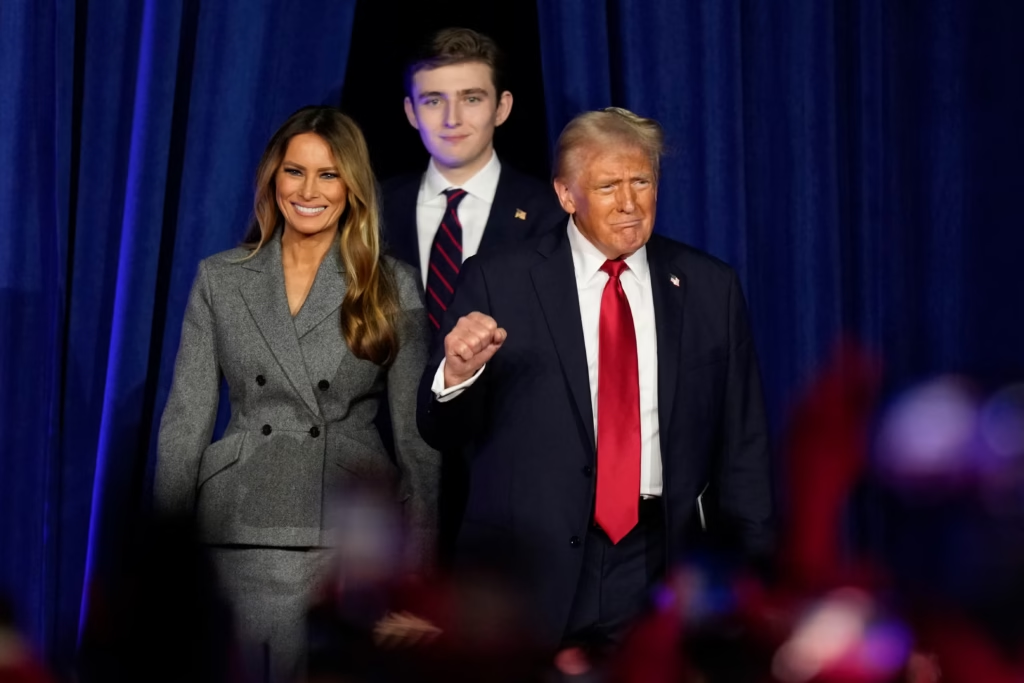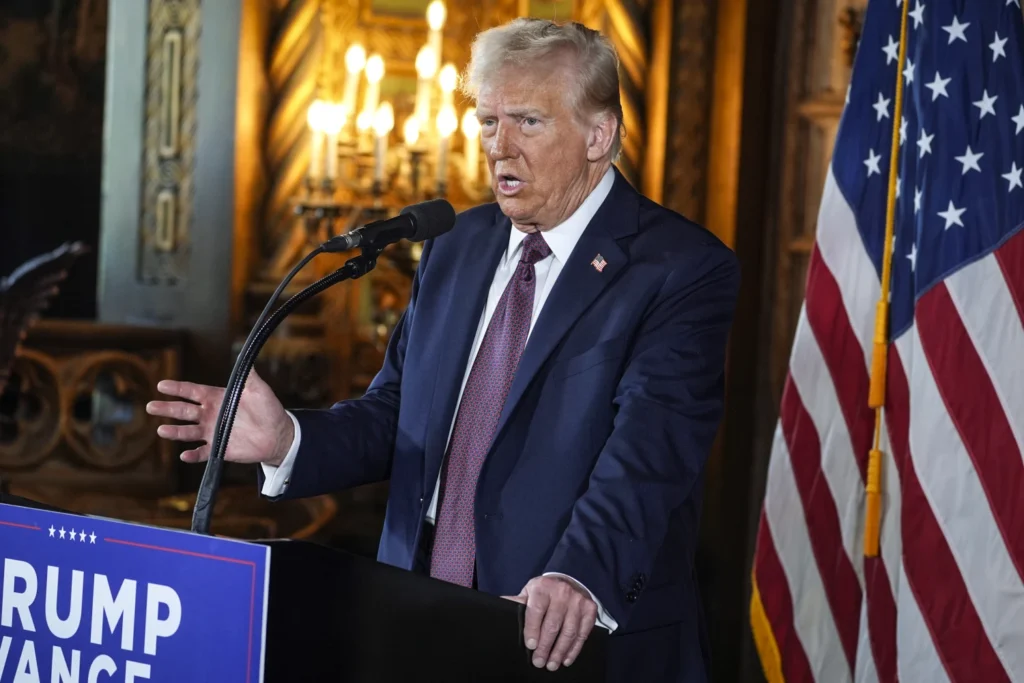In a historic moment, President-elect Donald Trump will be sentenced Friday for his conviction in a New York hush money case, marking the first time a president-elect faces sentencing for a felony. The U.S. Supreme Court declined to intervene, allowing the Manhattan proceeding to move forward.

Judge Juan M. Merchan is expected to impose an unconditional discharge — a no-penalty sentence involving no jail time, probation, or fines. Prosecutors have not opposed the decision. This unique legal outcome reflects efforts to avoid constitutional complications during Trump’s presidency, which begins in 10 days.
Despite the expected leniency, Trump, 77, will become the first individual convicted of a felony to assume the presidency. He is anticipated to appear via video from his Mar-a-Lago estate in Florida, where he may address the court. Trump has consistently labeled the case a politically motivated “fake prosecution.”
The case stems from allegations that Trump falsified business records to cover up a $130,000 payment to adult film actress Stormy Daniels during his 2016 campaign. Prosecutors argued the payment was intended to silence Daniels about an alleged affair, which Trump denies.
Manhattan District Attorney Alvin Bragg’s office asserted that Trump’s actions undermined the electoral process and New York’s financial integrity. Trump, however, maintains the payment was a personal matter to protect his family, not a campaign tactic.
“This is a fake, made-up charge,” Trump wrote last week on Truth Social.

Prosecutors allege that Daniels was paid through Trump’s then-attorney Michael Cohen, with reimbursements falsely recorded as legal expenses. Trump’s defense contends the records accurately reflected the transactions, dismissing allegations of misconduct.
Trump’s legal team has fought to overturn the May conviction on 34 counts of falsifying business records, filing appeals and motions to delay sentencing. Their arguments have focused on presidential immunity and constitutional concerns, including a July Supreme Court decision granting former presidents significant immunity.
The Supreme Court rejected Trump’s final bid to delay sentencing in a narrow 5-4 ruling late Thursday.
Judge Merchan, a Democrat, emphasized the need for “finality,” balancing respect for the jury’s verdict and public expectations that no one is above the law.
While the hush money case is the only one of Trump’s four criminal indictments to reach trial, others have stalled or been dismissed. Federal cases involving classified documents and efforts to overturn the 2020 election have been closed, while a Georgia election interference case remains unresolved after the removal of prosecutor Fani Willis.
Trump’s conviction underscores the intersection of legal accountability and political leadership as he prepares to return to the White House.



